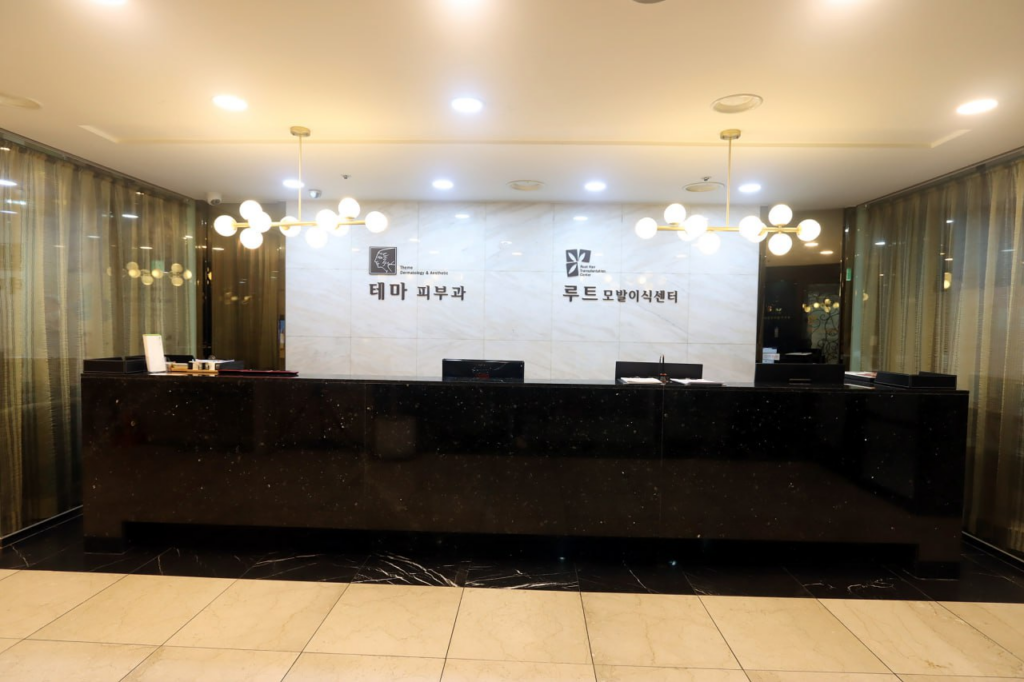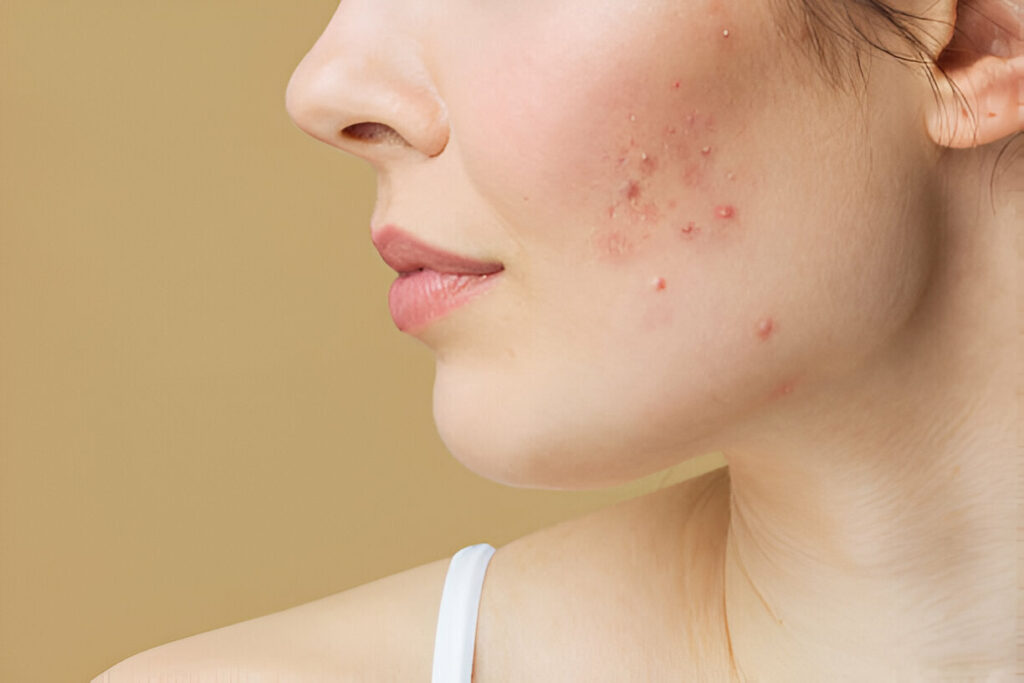Anyone who has had acne for a long time understands how difficult it can be to try and heal their skin. However, in addition to treating your current pimples, you can take precautions to stop new ones from appearing, ending the sometimes-seemingly never-ending cycle of breakouts. Acne is not a major health risk, but it is important in social and emotional contexts. Acne frequently results in lower self-confidence, which can have an impact on social interactions and even job productivity. Although there is no foolproof method to permanently cure acne, you can lessen outbreaks and maintain the healthiest possible state of your skin.
What is Acne Breakout
When oil and dead skin cells clog your hair follicles, acne, a skin disorder, results. Pimples, blackheads, or whiteheads are caused by it. Acne can afflict people of any age, although it is most frequent among teenagers. Acne can be stubborn, but there are effective treatments available. Slowly, the pimples and bumps heal, and as soon as one starts to disappear, more seem to appear. Acne can leave skin scars and induce emotional discomfort based on how severe it is. You have a decreased chance of these issues the earlier you begin treatment.
Ways to Prevent Acne and Pimples
- Wash the face twice daily
Contrary to popular opinion, acne is rarely caused by a dirty face. But it’s crucial to wash your skin frequently, especially after sweating, to get rid of extra oil and grime. A common preference is to use warm water and a mild cleaner. After cleansing, use an oil-free moisturizer to prevent the skin from being too dry. Excessive face cleaning could lead to dry skin, which would exacerbate pimples. But excessive face cleaning can dry out the skin and increase oil production. More acne may arise from this.
- Keep facial care products clean
People should routinely wash makeup brushes, facial sponges, and makeup containers with soap and water to maintain the skin as clean as possible and avoid bacterial accumulation that could cause outbreaks. Before using, make sure the brushes are thoroughly dry.
- Refrain from excess exfoliation
The process of exfoliating the skin involves eliminating dead cells. Exfoliation can alleviate acne, but too much of it might make breakouts worse. This results from excessive removal of the skin’s natural oil. In order to make up for this, the skin could generate extra oil, which clogs pores and results in more breakouts. An excessive amount of exfoliation might cause skin irritation or tightness after washing.
- Avoid skincare products that contain oil
Oil-based skin care solutions have the potential to block pores. This may exacerbate the symptoms of acne and raise the chance of getting pimples. Blocking pores might be less likely by using topical products without oil, such as sunscreens and moisturizers. Products without oil are referred to as noncomedogenic.
- Consider light or laser therapies
Photodynamic therapy may be suggested by a dermatologist to treat acne and pimples.
A medical practitioner uses a topical substance that increases the skin’s sensitivity to light in photodynamic treatment. The acne-affected area will then be the focus of a focused light source. Bacteria and dead skin cells can be destroyed by this. Similar methods are used in numerous different light and laser therapies to lessen the look of acne blemishes and pimples.
- Wear sunscreen when going outdoors
The skin is harmed in various ways by excessive sun exposure. Additionally, sunburn can cause an excess of oils to be produced, which exacerbates acne. On the other hand, one should make sure their sunscreen is safe to use on the face and noncomedogenic.
- Cut back on foods linked to acne
The American Academy of Dermatology states that eating meals high in glycemic index can either raise the risk of acne development or exacerbate existing acne. These foods have a lot of carbohydrates and sugar, which could be harmful. Cakes, pies, and cookies are a few examples. Additionally, dairy products—particularly skim milk—may make someone more susceptible to acne. A person may wish to reduce their intake of a specific food group to see any improvement in their skin.
- Talk to a doctor about hormone pills
Birth control tablets can help avoid breakouts in female hormonal acne situations by assisting in the regulation of the hormones that may exacerbate acne. Before making a choice, it is crucial to weigh the advantages and disadvantages of these medications because they are not without danger. In extreme cases of female hormonal acne, spirolactone—a drug used to treat high blood pressure—may be helpful. But because spironolactone can have a lot of adverse effects, it’s best to talk to your doctor about all of your options. Neither of these drugs is advised for usage by doctors in male patients.
- Talk to a dermatologist about antibiotics
Antibiotics applied topically can combat an excess of P. acne bacteria in the skin. Antibiotics that are prescribed for the treatment of this type of inflammatory acne include clindamycin and erythromycin. These antibiotics by themselves have the potential to make microorganisms resistant to therapy. Consequently, medical professionals will recommend benzoyl peroxide together with antibiotic treatments to lower the chance of germs becoming resistant. Inflammatory acne is distinguished from other types of acne by its red, inflamed appearance. It can hurt as well.
- Consider topical retinoids
Dermatologists recommend topical retinoids, which are products with medications made from vitamin A, to treat and prevent acne. By accelerating the production of new skin cells and shedding old ones, these therapies help to lessen pore blockage. The majority of topical retinoids, such as tretinoin (Retin-A, Renova) and tazarotene (Tazorac), are only available with a prescription. On the other hand, some topical retinoids are sold without a prescription, such as adapalene (Differin).
- Refrain from popping or picking at pimples
Squeezing a pimple may seem appealing, but doing so might result in scars and inflammation.
Use a topical treatment to lessen the visibility of blemishes. They can stop new pimples from growing, but they could take some time to act.
- Keep hair clean
Acne may worsen if there is too much oil in the hair and it gets on the skin. Washing your hair frequently can prevent acne, especially in areas along your hairline. Oil-containing hair care products can also result in pimples on the scalp and hairline. Steer clear of these things to reduce your chance of getting pimples.
- Refrain from harsh scrubbing
Some use washcloths or scratchy cloth pads to cleanse the skin. This may aggravate acne outbreaks by irritating the skin and causing irritation. Using a soft brush or clean hands to apply a mild cleanser to the face will help avoid pimples.
Why Choose Gangnam Theme Dermatology
Most people occasionally have pimples. While they don’t always work, prevention measures can be beneficial. It contributes to mental well-being by inducing deep relaxation, lifting your mood, and improving your overall emotional state.
The good news is that you don’t need to handle things by yourself. Theme Dermatology Clinic can be your partner in this journey. Our skilled team of medical professionals at Theme Dermatology Clinic has years of experience treating acne, and they are eager to assist you in getting the skin you’ve always desired. With three board-certified dermatologists with extensive expertise, Gangnam Theme Dermatology is one of the oldest dermatology practices in Gangnam, Seoul, South Korea. It can be found right between Sinnonhyeon and Gangnam Stations, in the center of the famous Gangnam neighborhood. With an extensive experience of over 20 years in dermatology, our team of specialists is highly regarded for their expertise and unwavering commitment to excellence. Over more than 20 years, the clinic cared for patients with various skin issues and types. They can assist you with acne, pigmentation, anti-aging (lifting), scars, and other skin issues. Also, among Korean clients, they are one of the most well-known skin clinics. The variety of services they offer and their knowledge of skin issues will satisfy you.
Gangnam Theme Dermatology Booking Information
The clinic can be found at 423 Gangnam-daero, Seocho-gu, Hanseung Building, 7th Floor, Seoul, South Korea. To reach out directly, dial +821094839974 on WhatsApp and Kakao. Sending a message to Gangnam Theme Dermatology will allow you to talk about your concerns, make an appointment, or receive an online consultation. Send an email to [email protected]. You can also look through everything and ask questions on the Gangnam Theme Dermatology website by clicking this link: https://themedermatology.com/about-us/.


FAQs
Everybody's experience with diet and acne is different. Not everyone's acne will worsen by consuming meals like sugar and dairy items that are connected to acne. Additionally, you may discover that some meals appear to help clear up acne. If you think particular foods could cause breakouts, you might want to keep track of everything you eat for a few weeks in a notebook to see if there are any connections between certain meals and the condition of your skin.
Many people who struggle with acne scarring later in life are victims of obstinate acne. The first step in preventing acne scars is to prevent acne. By treating your acne, taking good care of your face, avoiding smoking and prolonged sun exposure, which both affect how your skin heals, and not popping or picking at pimples—all of which can exacerbate scars—you can reduce your risk of scarring.
Swollen, inflammatory plugged pores are the root cause of cystic acne. By keeping your skin clean, using the right treatments for clogged pores, and washing your face frequently to avoid the accumulation of germs and sebum, you can lower your risk of getting cystic acne. However, since you are unable to alter certain hereditary variables that contribute to acne, such as your age, family history of acne, or hormones, you might not be able to completely prevent it.
Conclusion
Most people occasionally have pimples. While they don’t always work, prevention measures can be beneficial. Pimples can be caused by a variety of causes, such as food, stress, hormones, and genetics. Even outbreaks may be caused by certain drugs. Nevertheless, there are several alternatives available to you for managing and treating pimples. Just remember that persistence and patience are essential for improving whatever pimple prevention strategy you decide on. While a single zit may disappear with an overnight application of benzoyl peroxide, most treatments require many weeks to show any sort of effect.

